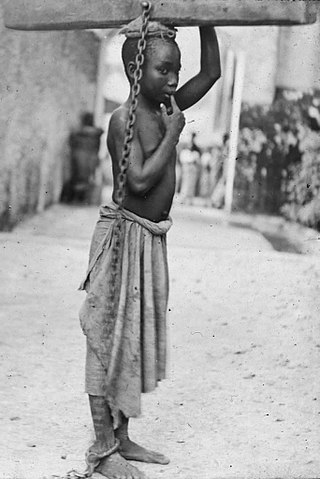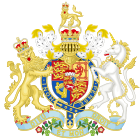Jurisdiction is the legal term for the legal authority granted to a legal entity to enact justice. In federations like the United States, the concept of jurisdiction applies at multiple levels.

Murder is the unlawful killing of another human without justification or valid excuse committed with the necessary intention as defined by the law in a specific jurisdiction. This state of mind may, depending upon the jurisdiction, distinguish murder from other forms of unlawful homicide, such as manslaughter. Manslaughter is killing committed in the absence of malice, such as in the case of voluntary manslaughter brought about by reasonable provocation, or diminished capacity. Involuntary manslaughter, where it is recognized, is a killing that lacks all but the most attenuated guilty intent, recklessness.
A misdemeanor is any "lesser" criminal act in some common law legal systems. Misdemeanors are generally punished less severely than more serious felonies, but theoretically more so than administrative infractions and regulatory offences. Typically, misdemeanors are punished with prison time of no longer than one year, monetary fines, or community service.

Abolitionism, or the abolitionist movement, is the movement to end slavery and liberate slaves around the world.

The Mann Act, previously called the White-Slave Traffic Act of 1910, is a United States federal law, passed June 25, 1910. It is named after Congressman James Robert Mann of Illinois.
Burglary, also called breaking and entering (B&E) and housebreaking, is the act of illegally entering a building or other areas without permission, typically with the intention of committing a further criminal offence. Usually that offence is theft, larceny, robbery, or murder, but most jurisdictions include others within the ambit of burglary. To commit burglary is to burgle, a term back-formed from the word burglar, or to burglarize.
Embezzlement is a term commonly used for a type of financial crime, usually involving theft of money from a business or employer. It often involves a trusted individual taking advantage of their position to steal funds or assets, most commonly over a period of time.
The rule of felony murder is a legal doctrine in some common law jurisdictions that broadens the crime of murder: when someone is killed in the commission of a dangerous or enumerated crime, the offender, and also the offender's accomplices or co-conspirators, may be found guilty of murder.
A hybrid offence, dual offence, Crown option offence, dual procedure offence, offence triable either way, or wobbler is one of the special class offences in the common law jurisdictions where the case may be prosecuted either summarily or on indictment. In the United States, an alternative misdemeanor/felony offense lists both county jail and state prison as possible punishment, for example, theft.

Îles de Los are an island group lying off Conakry in Guinea, on the west coast of Africa. Their name is derived from the Portuguese: Ilhas dos Ídolos, "Islands of the Idols". They are located about two kilometres off the headland limiting the southern side of Sangareya Bay.

The Slavery Abolition Act 1833 was an Act of the Parliament of the United Kingdom which provided for the gradual abolition of slavery in most parts of the British Empire. Passed by Earl Grey's reforming administration, it expanded the jurisdiction of the Slave Trade Act 1807 and made the purchase or ownership of slaves illegal within the British Empire, with the exception of "the Territories in the Possession of the East India Company", Ceylon, and Saint Helena. The Act came into force on 1 August 1834, and was repealed in 1998 as a part of wider rationalisation of English statute law; however, later anti-slavery legislation remains in force.
Misprision of felony is a form of misprision, and an offence under the common law of England that is no longer active in many common law countries. Where it was or is active, it is classified as a misdemeanor. It consists of failing to report knowledge of a felony to the appropriate authorities. Exceptions were made for close family members of the felon and where the disclosure would tend to incriminate the reporter himself.
Vice admiralty courts were juryless courts located in British colonies that were granted jurisdiction over local legal matters related to maritime activities, such as disputes between merchants and seamen.
Slavery at common law in the British Empire developed slowly over centuries, and was characterised by inconsistent decisions and varying rationales for the treatment of slavery, the slave trade, and the rights of slaves and slave owners. Unlike in its colonies, within the home islands of Britain, until 1807, except for statutes facilitating and taxing the international slave trade, there was virtually no legislative intervention in relation to slaves as property, and accordingly the common law had something of a "free hand" to develop, untrammelled by the "paralysing hand of the Parliamentary draftsmen". Two attempts to pass a slave code via Parliament itself both failed, one in the 1660s and the other in 1674.

Slave Trade Act is a stock short title used for legislation in the United Kingdom and the United States that relates to the slave trade.

Slavery in Britain existed before the Roman occupation and endured until the 11th century, when the Norman conquest of England resulted in the gradual merger of the pre-conquest institution of slavery into serfdom. Given the widespread socio-political changes, all slaves were no longer recognised separately in English law or custom. By the middle of the 12th century, the institution of slavery as it had existed prior to the Norman conquest had fully disappeared, but other forms of unfree servitude continued for some centuries.

In the United States, each state and territory sets the age of consent either by statute or the common law applies, and there are several federal statutes related to protecting minors from sexual predators. Depending on the jurisdiction, the legal age of consent is between 16 and 18. In some places, civil and criminal laws within the same state conflict with each other.

The Taney Court heard thirty criminal law cases, approximately one per year. Notable cases include Prigg v. Pennsylvania (1842), United States v. Rogers (1846), Ableman v. Booth (1858), Ex parte Vallandigham (1861), and United States v. Jackalow (1862).

Abolitionism in the United Kingdom was the movement in the late 18th and early 19th centuries to end the practice of slavery, whether formal or informal, in the United Kingdom, the British Empire and the world, including ending the Atlantic slave trade. It was part of a wider abolitionism movement in Western Europe and the Americas.
Samuel Samo was a Dutch slave trader who was the first person to be prosecuted under the British Slave Trade Felony Act 1811.









